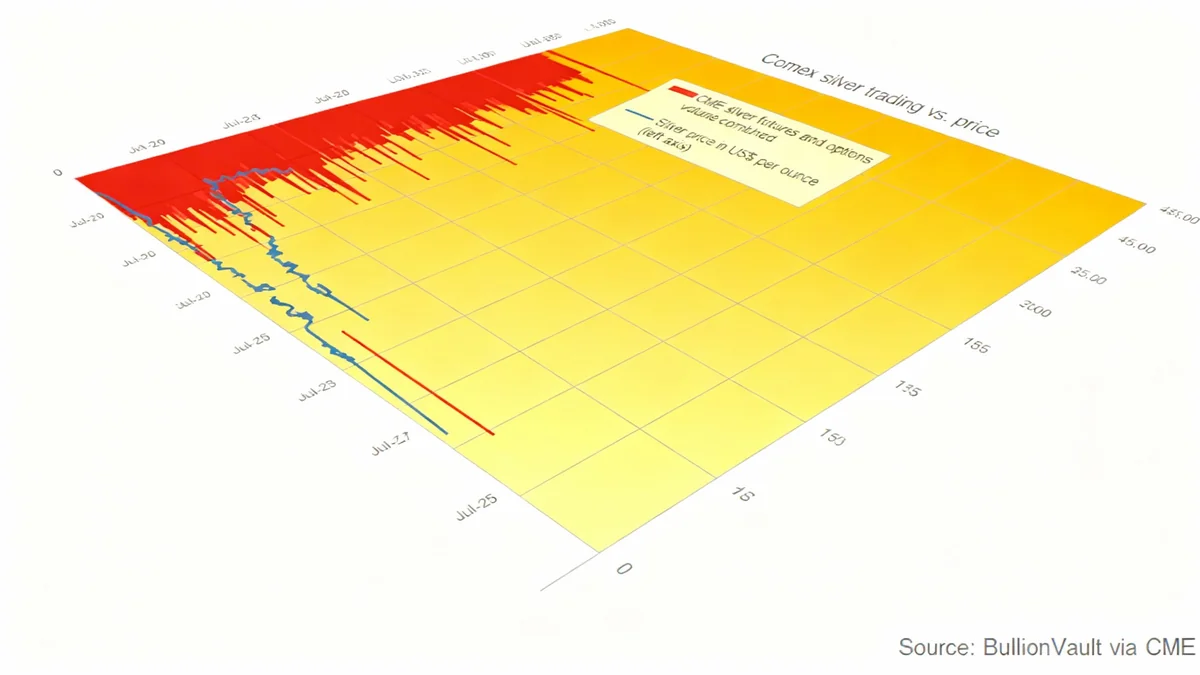The Nasdaq-100 index has climbed to an all-time high, driven largely by the robust performance of its technology sector components. This surge prompts investors to consider the longevity of current growth trends and the historical resilience of the market.
The Nasdaq-100, represented by the Invesco QQQ Trust ETF, tracks 100 of the largest non-financial companies listed on the Nasdaq exchange. These companies are often at the forefront of high-growth industries, including artificial intelligence (AI), cloud computing, and digital advertising.
Key Takeaways
- The Nasdaq-100 index is currently at an all-time high.
- Technology stocks, especially those in AI, are the primary drivers of this growth.
- The Invesco QQQ Trust ETF mirrors the Nasdaq-100's performance.
- Historically, long-term investing in the Nasdaq-100 has yielded positive returns despite market volatility.
- Top holdings like Nvidia and Microsoft have significantly outperformed the broader market.
Technology Dominates Nasdaq-100 Performance
The Nasdaq stock exchange has long been a favored listing venue for technology companies. Its lower listing fees and streamlined process appeal to rapidly growing, early-stage firms. This environment has resulted in a high concentration of technology names within the Nasdaq-100 index.
Many of these companies operate in cutting-edge fields, such as artificial intelligence and cloud computing. Their innovation drives substantial annual returns for the Nasdaq-100, often surpassing the more diversified S&P 500.
Did You Know?
The top five positions in the Invesco QQQ ETF account for 39.5% of its total portfolio value. These same stocks represent 30.2% of the S&P 500.
Leading the Charge: Top Holdings
The Invesco QQQ Trust (QQQ) directly tracks the Nasdaq-100, holding the same stocks with similar weightings. A closer look at its top positions reveals the companies fueling its current ascent.
- Nvidia: 10.29% weighting in QQQ
- Apple: 8.40% weighting in QQQ
- Microsoft: 8.15% weighting in QQQ
- Alphabet: 6.61% weighting in QQQ
- Broadcom: 6.11% weighting in QQQ
Since the beginning of 2023, these five stocks have delivered a median return of 218%. This explosive growth has propelled the Nasdaq-100 to a 136% return over the same period, significantly outperforming the S&P 500's 78% gain.
AI's Impact on Market Growth
The recent surge in the Nasdaq-100 is closely tied to the artificial intelligence boom. Companies like Nvidia and Broadcom are crucial suppliers of data center chips and components essential for developing AI software.
Microsoft and Alphabet, on the other hand, are major consumers of this hardware. They utilize it to build their own large language models (LLMs) and AI chatbots. These tech giants also offer computing capacity to businesses through their cloud platforms, Microsoft Azure and Google Cloud, generating significant revenue.
Understanding AI's Role
Artificial intelligence involves machines learning from data to perform tasks that typically require human intelligence. This technology is transforming various sectors, from software development to consumer electronics, driving demand for specialized hardware and cloud services.
Apple is also integrating its Apple Intelligence software into its vast ecosystem of over 2.35 billion active devices, including iPhones, iPads, and Macs. This move positions Apple to become a significant AI touchpoint for consumers worldwide.
Beyond the top five, other prominent AI stocks such as Amazon, Tesla, Meta Platforms, Palantir Technologies, and Advanced Micro Devices are also among the top 20 holdings in the Invesco QQQ ETF.
Diversification Beyond Pure Tech
While the Invesco QQQ ETF is heavily concentrated in technology, it also offers a degree of diversification. The fund includes positions in retail and consumer products companies, providing a broader market exposure.
For example, investors will find names like Costco Wholesale, Starbucks, PepsiCo, and Monster Beverage within the ETF's portfolio. This blend helps to balance the high-growth, high-volatility nature of the pure tech plays.
"Technology is constantly evolving, so even if the AI tailwind tapers off in a few years' time, other up-and-coming industries could pick up the slack."
Historical Performance and Future Outlook
Since its inception in 1999, the Invesco QQQ ETF has delivered a compound annual return of 10.6%. This impressive performance includes navigating numerous market sell-offs, corrections, and bear markets.
Market volatility is a normal part of the investing landscape. The Nasdaq-100 has experienced three bear markets (declines of 20% or more) in the last five years alone. These downturns were triggered by events such as the COVID-19 pandemic in 2020, rising interest rates in 2022, and tariff announcements earlier this year.
Market Resilience
The average bear market in stocks typically lasts only 289 days, or about nine and a half months, according to Hartford Funds. This data suggests that long-term investors often see positive returns.
Despite these significant challenges, the Nasdaq-100 has consistently recovered, reaching new all-time highs. This historical pattern suggests that focusing on the long term is key for investors.
Beyond AI, technologies like personal computers, smartphones, the internet, enterprise software, cloud computing, and electric vehicles have all contributed to the Nasdaq-100's strong returns since the 1980s. The sector's inherent innovation continues to drive growth.
Looking ahead, new industries such as autonomous vehicles, robotics, and quantum computing are emerging. These promising areas within the tech sector could become the next drivers of growth, ensuring the Nasdaq-100's continued relevance and performance.
Therefore, long-term investors should not be deterred by the Nasdaq-100's current all-time high. History shows that sustained investment in this index has consistently rewarded patience.





